Mathematics
Intent
At the Queens’ Federation we aim to foster ‘Learning for Life.’
We will provide a rich, relevant and inspirational curriculum that promotes a lifelong love of learning and equips our pupils with the key knowledge and understanding, skills and personal qualities that they will need to thrive in a rapidly changing world. Our curriculum is designed to be relevant to our children and is linked to the context of our school and the local community.
At Queen Emma Primary School, we want all pupils to achieve confidence, competence and enjoyment in mathematics. The fundamental idea is that all pupils develop a deep understanding of the mathematics. This is central to the planning and provision of mathematics. Learning is carefully sequenced, taking into account what has been taught before, and what knowledge and skills are needed for the next stage of each child’s mathematical development.
Three key aims at the heart of our mathematics curriculum are for pupils to:
- be fluent in the fundamentals of mathematics
- reason mathematically
- solve routine and non-routine problems with increasing independence.
Implementation
Key features of our approach:
- Children progress through the curriculum content at the same pace.
- Teachers reinforce an expectation that all children are capable of achieving high standards in mathematics.
- Children are taught through daily whole-class teaching, where the focus is on all pupils working together on the same lesson content at the same time.
- Daily fluency sessions support the retention and recall of key number facts.
- Teaching is underpinned by a small-steps mastery approach and supported by carefully crafted lessons, resources and representations to foster deep conceptual and procedural knowledge.
- Differentiation is achieved through the provision of step forward and step back activities within the majority of lessons.
We are a Teaching for Mastery school and this approach is implemented and supported through the use of the NCETM Spines, White Rose Mathematics scheme and the NCETM Mastering Number Programme in Reception and KS1. Teachers will also carefully select other resources to support their teaching to ensure an enriching curriculum which is in line with the Teaching for Mastery ethos. For example, NRich or I See Reasoning tasks. Through the use of these resources we ensure that:
- Teachers introduce new concepts in a coherent sequence using a mastery approach.
- Concepts are taught through high quality mathematical models and representations.
- Mathematical models are consistently used through school.
- Teachers are supported with their subject knowledge.
Impact
At Queen Emma Primary School, pupils leave us as knowledgeable, skillful and confident mathematicians ready for the next phase of their learning. They are able to quickly recall facts and procedures and have the flexibility and fluidity to move between different contexts and representations of mathematics. Our pupils have the ability to recognise relationships and make connections in mathematics and can demonstrate a skill in multiple ways, using mathematical language to explain their ideas. Pupils recognise the importance of mathematics in the wider world and are able to use their mathematical skills and knowledge confidently in a range of different contexts.
YEARLY OVERVIEWS
Queen Emma is a Teaching for Mastery school. We use this approach to implement and support the objectives for each year group from Year 1 to 6, as taken from the national curriculum. For more information on this please visit https://www.ncetm.org.uk/.
No Nonsense Number Facts
Information for Parents
Our Calculation Policy documents outline the main methods and strategies that we use with the children to support them in the development of their mathematical skills and knowledge. Methods of written calculation are always taught alongside the use of practical resources, models and representations.
Please note that the documents are split into three main areas and the year groups to which they apply are shown in their titles:
· Number and Place Value
· Multiplication and Division
· Fractions
On the National Numeracy website you can find a wealth of ideas for ways in which you can support your child’s maths at home.
Conker Maths is a website where children can work on their recall of number facts. When you click on the link you will see a list of options on the right, under the heading ‘Quick Start’. Select the ‘number questions – pupils’ option and it will take you to a list of maths objectives. Select the one you would like to practise and it will provide different calculations for your child to work on.
BBC Bitesize for KS1 and BBC Bitesize for KS2 offers information on maths by topic with interactive activities for children to use.
Primary Games Arena has a wide range of fun maths games across all topics.
NRich has lots of maths games and problems to help children develop their mathematical thinking and problem solving skills.
Please find below our No Nonsense Number Facts for Year1 to Year 6.
Examples of Learning
Year 1 children have been busy exploring numbers from 0 to 5, odd and even numbers, and comparing using the less than, equal to and greater than expressions. We have used Rekenreks to help us partition numbers and find their bonds. We have been drawing part-whole models and bar models to show number bonds.

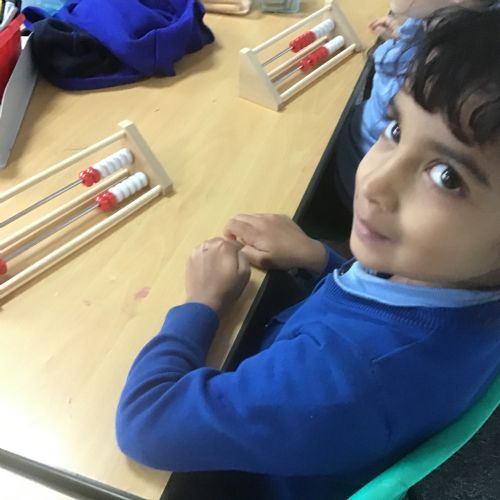
.jpg)
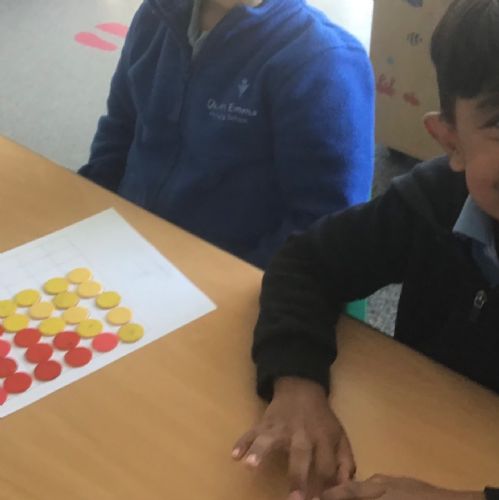
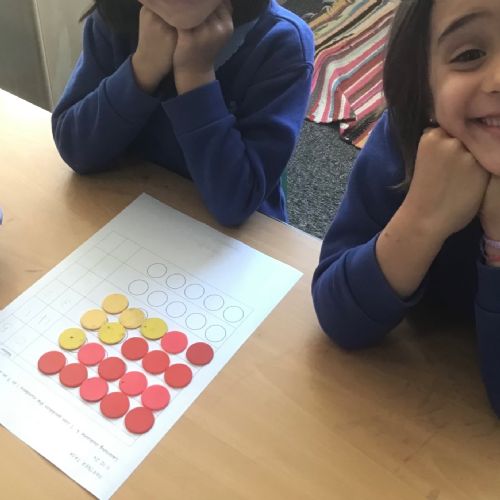
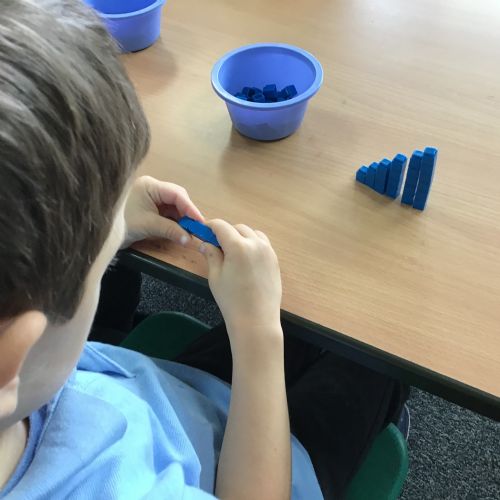
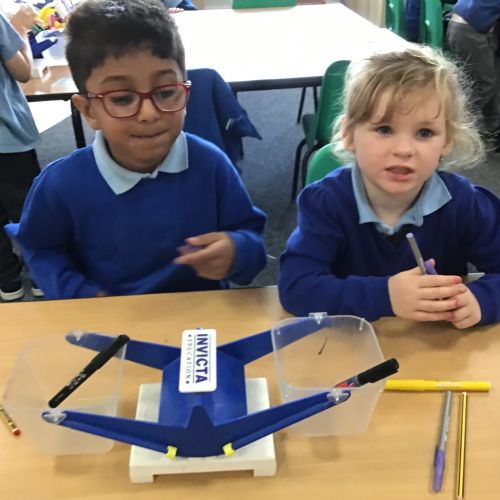
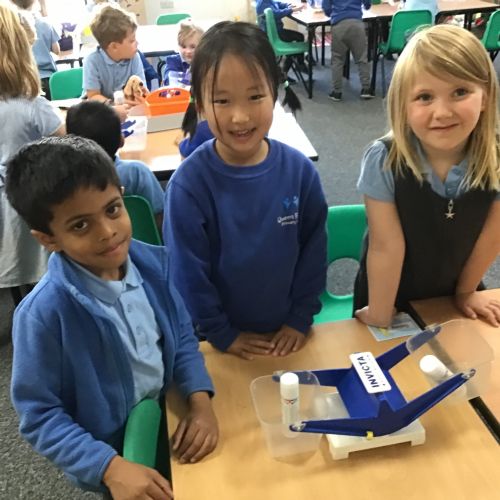
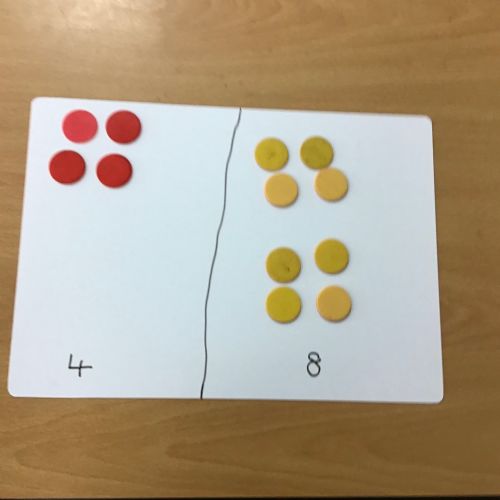
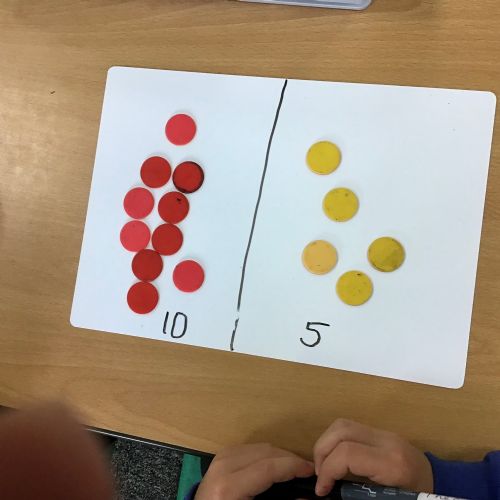
.jpg)